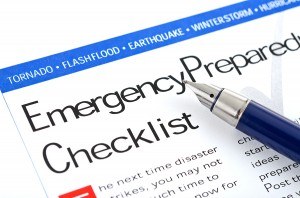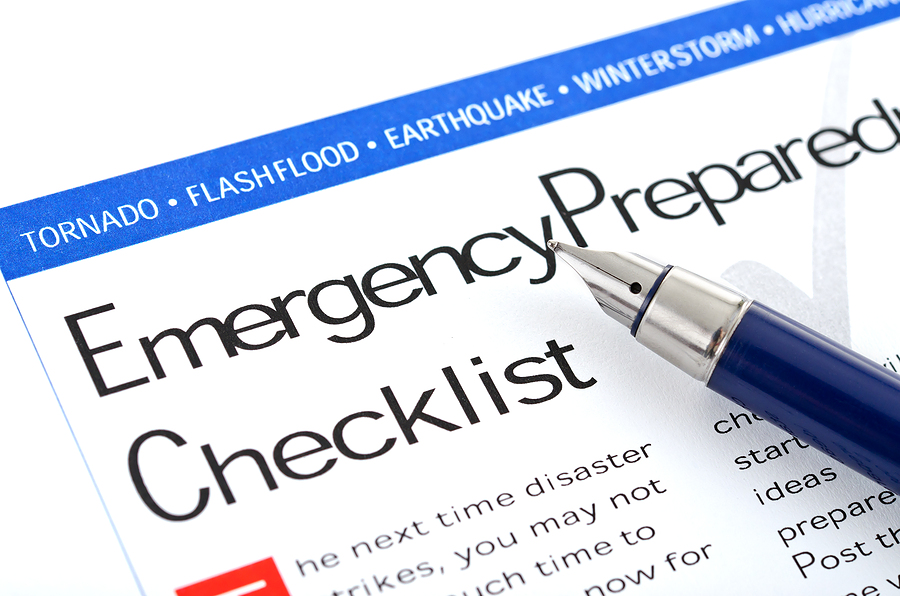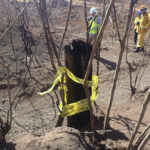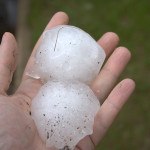Americans and emergency management experts agree on one thing. Over the past few years, the U.S. has experienced a record number of natural disasters that have destroyed neighborhoods and cost lives. In fact, the Federal Emergency Management Agency made 99 major disaster declarations1 in 2011, the most mega catastrophes declared since 1953.
What is even more concerning is what citizens are doing – or not doing – in the wake of an approaching catastrophe.
A new survey from Allstate shows more than one-in-four (27 percent) Americans say they would ignore evacuation orders and wait until absolutely necessary before leaving their home or seeking shelter in the event of an imminent natural disaster.
“There is a clear opportunity for people across the country to better understand the importance of following evacuation protocols,” said Allstate’s Executive Vice President of Claims Mike Roche. “Preparation is a family’s best defense against a natural disaster.”
According to the Allstate survey, 21 percent of Americans have had their homes damaged by natural disasters. However, this elevated level of disasters and property damage have not been a call to action for many. Not only are people willing to take their chances with an approaching catastrophe, they may not be as prepared as they should be.
Americans’ lack of evacuation plans and procedures are a cause for concern. Nearly half (46 percent) of survey respondents say they have not thought about or even discussed an evacuation plan or meeting place away from the home for their family. These plans are crucial and should be discussed with relatives and neighbors in advance of a catastrophe.
The majority of Americans (62 percent) also say they have not prepared an emergency kit. Families should consider putting together a well-stocked first-aid kit as well as a disaster-supply kit and keeping them in easy-to-access places. The disaster-supply kit should contain a supply of water and ready-to-eat, non-perishable foods, a weather radio, traveler’s checks or cash, important papers, personal hygiene items, blankets, extra clothes and shoes.
Fifty-six percent of homeowners and renters say they have not made a home inventory list of their personal belongings. Having a room-by-room inventory, as well as photographs of personal belongings can save a lot of headaches – or heartaches – should a catastrophe strike. The list can also help make the process of filing an insurance claim easier.
“Being aware of risks and hazards and taking steps to prepare can reduce the impacts of damage from disasters,” said FEMA Administrator Craig Fugate. Hurricane season began in June “yet we have already had named storms. When it comes to preparing for disasters, don’t simply focus on the calendar … focus on the need to be prepared.”
Today’s survey release is a part of a comprehensive effort by Allstate to encourage residents to become better prepared for natural disasters, including hurricanes, tornadoes, floods and, when the season hits, winter blizzards. As a part of this effort, Allstate is a proud member of ProtectingAmerica.org, which is a coalition dedicated to comprehensive, long-term solutions that will help better prepare people to recover more quickly from catastrophes and prevent needless injury and property damage. The long-standing coalition is a leading advocate for taking a proactive approach to addressing America’s catastrophe preparedness.
The study was based on telephone interviews with a nationally representative sample of 1,000 residents with homeowners or renter’s insurance, age 18 years and older across the United States. Interviews were conducted May 16-17 & 19, 2012, and the survey has a margin of error of +/- 3.1% at the 95% confidence interval. The survey investigates Americans attitudes, opinions and experiences about how well prepared and covered they are in the case of a natural disaster striking. The survey was conducted by FTI Consulting for Allstate.
Source: Allstate
Was this article valuable?
Here are more articles you may enjoy.


 Hawaiian Electric Hits 40-Year Low Ahead of Maui Fire Report
Hawaiian Electric Hits 40-Year Low Ahead of Maui Fire Report  Poll: Consumers OK with AI in P/C Insurance, but Not So Much for Claims and Underwriting
Poll: Consumers OK with AI in P/C Insurance, but Not So Much for Claims and Underwriting  California Chiropractor Sentenced to 54 Years for $150M Workers’ Comp Scheme
California Chiropractor Sentenced to 54 Years for $150M Workers’ Comp Scheme  CoreLogic Report Probes Evolving Severe Convective Storm Risk Landscape
CoreLogic Report Probes Evolving Severe Convective Storm Risk Landscape 